-
Self-employed and informal sector workers in Venezuela are to be included in the nation’s social security system, after an announcement by President Hugo Chavez on April 21. The Law of Social Security will be changed to allow informally employed workers to register with the Venezuelan Institute of Social Security (IVSS) and make social security payments.
-
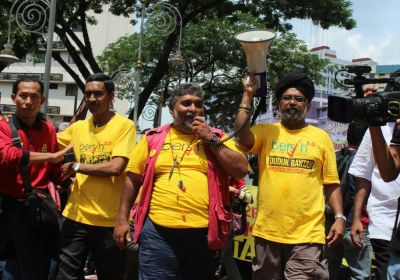
S. Arutchelvan, secretary general of the Socialist Party of Malaysia, is a veteran of many demonstrations. But the Bersih 3.0 mobilisation, which he estimates was between 100,000 and 150,000-strong, was the biggest he's been a part of in the country.
-
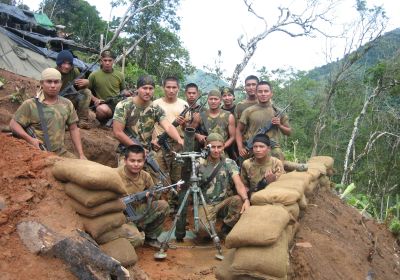 After a hostage crisis in which one of armed group Shining Path's (Sendero Luminoso – SL) factions abducted gas workers employed by a major multinational, a counter-insurgency operation was launched in the Apurimac-Ene River Valley (VRAE). The stand-off was reported by the international media. But what has been largely ignored are the human rights abuses against VRAE civilian communities are being committed by the Peruvian military.
After a hostage crisis in which one of armed group Shining Path's (Sendero Luminoso – SL) factions abducted gas workers employed by a major multinational, a counter-insurgency operation was launched in the Apurimac-Ene River Valley (VRAE). The stand-off was reported by the international media. But what has been largely ignored are the human rights abuses against VRAE civilian communities are being committed by the Peruvian military. -
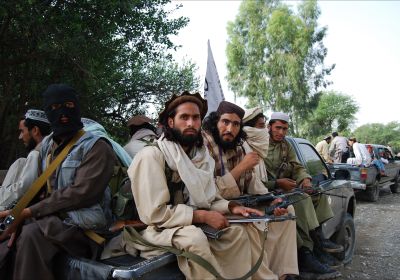 Prime Minister Julia Gillard’s April 17 speech to the Council of the Australian Strategic Policy Institute was widely reported in the global media as announcing an early withdrawal of Australian troops from Afghanistan. But the April 20 Australian Financial Review said government ministers had reassured Australia’s allies in the US-led multinational occupation of Afghanistan that the speech did no such thing.
Prime Minister Julia Gillard’s April 17 speech to the Council of the Australian Strategic Policy Institute was widely reported in the global media as announcing an early withdrawal of Australian troops from Afghanistan. But the April 20 Australian Financial Review said government ministers had reassured Australia’s allies in the US-led multinational occupation of Afghanistan that the speech did no such thing. -
On April 28, up to 8000 people marched in Auckland against the threatened sell-off of public assets by New Zealand National Party Prime Minister John Key. A few days earlier, a Hikoi (walk) began from Cape Reinga in the far north of New Zealand's north island, headed for the capital, Wellington. Arriving in Auckland in time to coincide with the event, participants in the Hikoi marched from Victoria Park to Britomart, where they met up with the assembling protest. The crowd then made its way up Queen Street to Aotearoa Square.
-
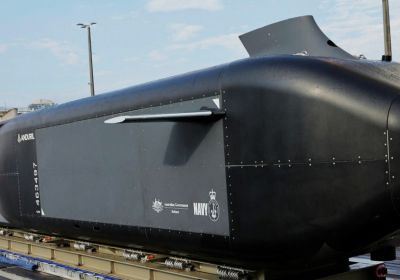
The Aotearoa Is Not For Sale hikoi drew an estimated 3000 people as it passed through Auckland on April 29 on its two-week journey from Cape Reinga to Wellington. Protesters are opposed to the planned sale of up to 49 per cent shares in the state owned energy companies: Mighty River, Genesis Power, Meridian Energy and Solid Energy. A statement from organisers said today's hikoi would also highlight plans to mine sand on the West Coast.
-
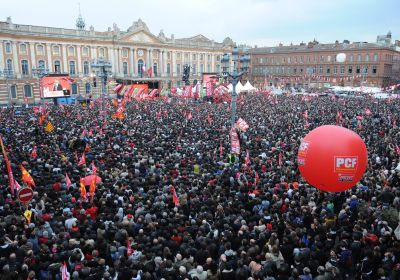
The results of the first round of the French presidential elections on April 22 shone a powerful spotlight on a society polarised by economic crisis and the austerity regime of president Nicolas Sarkozy and his ruling Union for a Popular Movement government.
-
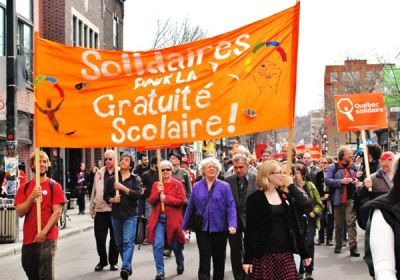
A crowd estimated at 250,000 people or more wound its way through Montréal April 22 in Quebec’s largest ever Earth Day march. They raised many demands: an end to tar sands and shale gas development, opposition to the Quebec government’s Plan Nord mining expansion, support for radical measures to protect ecosystems, and other causes.
-
 Presidential elections in France are a media spectacle rivalled perhaps only by those in the United States. In day-to-day life, there is also a real buzz as people argue and discuss the race on worksites, the street and, habitually, in cafes. Streets are plastered with posters of candidates and clever activist propaganda (over the top of some street signs here, activists have put up “Impasse Sarkozy”).
Presidential elections in France are a media spectacle rivalled perhaps only by those in the United States. In day-to-day life, there is also a real buzz as people argue and discuss the race on worksites, the street and, habitually, in cafes. Streets are plastered with posters of candidates and clever activist propaganda (over the top of some street signs here, activists have put up “Impasse Sarkozy”). -
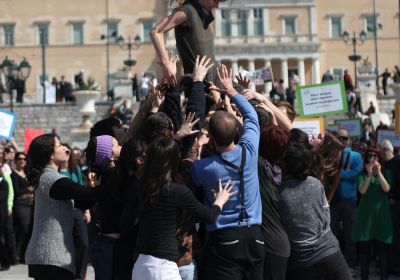 The people of Greece will go to the polls on May 6 to replace the unelected government of Prime Minister Lucas Papademos imposed by the Greek and European elites on November 10. The imposed government was a three-party coalition, consisting of the social-democratic Panhellenic Socialist Movement (PASOK), traditional right-wing New Democracy (ND) and extreme-right Popular Orthodox Alert (LAOS). LAOS left the government in February.
The people of Greece will go to the polls on May 6 to replace the unelected government of Prime Minister Lucas Papademos imposed by the Greek and European elites on November 10. The imposed government was a three-party coalition, consisting of the social-democratic Panhellenic Socialist Movement (PASOK), traditional right-wing New Democracy (ND) and extreme-right Popular Orthodox Alert (LAOS). LAOS left the government in February. -
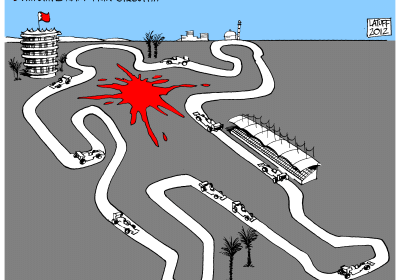 The Bahrain government's attempts to use the April 22 Formula One race to portray the country as harmonious have backfired badly. The world's media were forced to focus on the ongoing protests against the ruling al-Khalifa dynasty over demands for democracy and justice for those who have suffered human rights abuses. The government marketed the race with the slogan "UniF1ed", in a brazen attempt to whitewash the protests and suggest the country had returned to normal.
The Bahrain government's attempts to use the April 22 Formula One race to portray the country as harmonious have backfired badly. The world's media were forced to focus on the ongoing protests against the ruling al-Khalifa dynasty over demands for democracy and justice for those who have suffered human rights abuses. The government marketed the race with the slogan "UniF1ed", in a brazen attempt to whitewash the protests and suggest the country had returned to normal. -
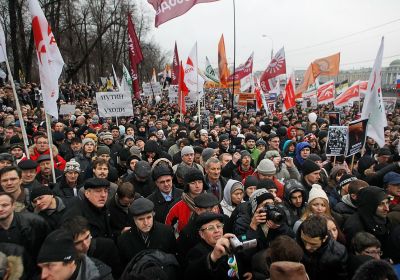
It's been a lively couple of months for Russia's opposition. After last December's parliamentary elections, the country was hit by the largest demonstrations since the 1990s. Defying freezing temperatures, tens of thousands gathered in Moscow alone to protest against election irregularities and the victorious United Russia party of Vladimir Putin and Dmitri Medvedev. The huge rise in turnout, compared with any demonstration in recent memory, surprised everyone, especially the opposition.
World
World